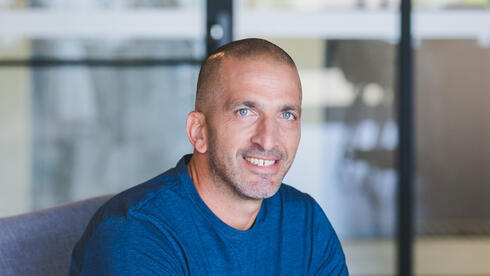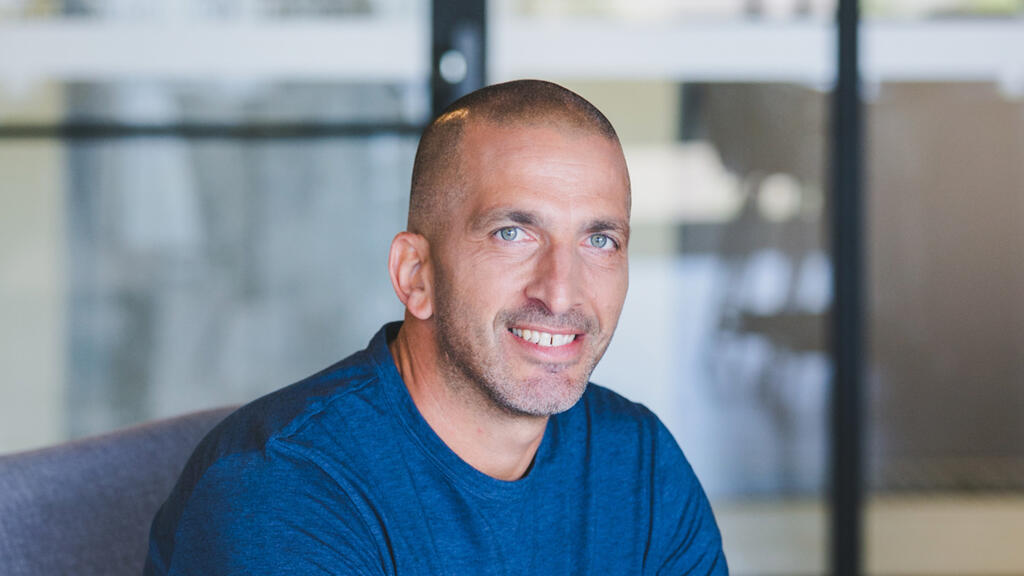
2024 VC Survey
“There has always been an element of risk around the Israeli tech industry”
Managing Partner of TAU Ventures Nimrod Cohen joined CTech to discuss VC trends in 2024 amid a variety of uncertainties.
“There has always been an element of risk around the Israeli industry because the reality was such that there is an element of security risk,” said Nimrod Cohen, Managing Partner at TAU Ventures. “Added to this was the political crisis, which put us all in a dangerous spiral because it threatened to undermine the foundations of Israeli democracy.”
Israel faced unprecedented challenges in 2023. Starting the year with political protests challenging the proposed judicial reform and ending with an all-out war with Hamas, every aspect of life in Israel has been under threat. Startup Nation is no exception to feeling that pressure, with foreign and local investment hitting a bump.
Still, Cohen remains optimistic about the future. “Looking ahead, I feel comfortable saying cautiously that there is a good chance that in retrospect it will be a small blow to the wing and we will come out stronger,” he added.
TAU Ventures is a VC firm investing in early-stage Israeli startups. It has joined CTech for its new 2024 VC Series exploring some of the trends the high-tech community in Israel can expect to see this year.
VC fund ID
Name of the fund/funds: TAU Ventures
Total assets: $70M
Leading partners: Nimrod Cohen, Inbal Perlman
Latest investments in Israel: Nov 2023
Selected portfolio companies: Xtend, Swimm, Cyabra, InnerPlant, Hoopo
From your perspective, was 2023 a ‘lost year’, or can the events that happened during it be seen as a springboard for opportunities in 2024?
I agree with you that 2023 was a particularly challenging year for startups, the industry, and the country. However, as with most crises, opportunities also arise in such situations. I am very optimistic about the future in the medium and long term, and those who can overcome the short-term challenges and/or plant seeds during this period will benefit greatly from it in the future.
What do you believe is more crucial to the state of Israeli tech: the influence of global processes and the global economy, or the local events ranging from the political protest to the war state?
I think that both variables affect the industry. On the one hand, the high-tech industry is very global - many investors from abroad, customers abroad, etc., so it is clear that global processes also directly affect the local industry. On the other hand, even if everything is blooming around, there is a crisis in Israel - it certainly affects, for example, the willingness of foreign investors to invest in Israeli companies, the desire of international corporations to open or maintain centers in the country, the willingness of customers to purchase services from Israeli companies, and so on.
Has the prestige of Israeli high-tech been damaged, or are the protests and the war merely a 'small bump in the road' from which the sector can recover within months?
There has always been an element of risk around the Israeli industry because the reality was such that there is an element of security risk. Added to this was the political crisis, which put us all in a dangerous spiral because it threatened to undermine the foundations of Israeli democracy.
Looking ahead, I feel comfortable saying cautiously that there is a good chance that in retrospect it will be a small blow to the wing and we will come out stronger.
In terms of security risk: In the medium term, there is a high probability that the security reality in Israel will be better than before October 7. Either as a result of the military actions we have taken and will take or as a result of political agreements. In addition, Israeli high-tech has proven that even in an extreme situation of war and extensive reserve mobilization, most companies managed to continue full activity and meet their missions.
In terms of the political aspect: I am full of hope and appreciation that what was will not be. It is only a matter of time until a balanced and liberal government will be elected in Israel that will strengthen the democratic foundations and rebuild the infrastructure in all senses. I also heard a lot from foreigners that the way the liberal bloc and the high-tech industry responded to the coup attempt increased their confidence and appreciation for Israelis, as we fought with all our might for what we believe in and showed exceptional spirit when in most of the world the residents would accept things as a matter of course.
How much effort was required of you to maintain the fund's status with your investors in 2023? What were their primary concerns and how did you address them?
Fortunately, we have investors who are proud and confident in their investment in our fund. Their primary concern was for our safety and the well-being of our families. They have supported us in an extraordinary way and have even encouraged us to continue to support our companies and the industry in general. They are confident that there are currently exceptional opportunities in the market
How are you preparing for the most pessimistic scenarios, such as the continuation of the war in Gaza deep into 2024, the opening of another front in the north, or further reduction of government support for high-tech?
Our companies have made adjustments to cope with a situation of labor shortage on the one hand and difficulty in raising new funds on the other. Of course, the longer the current situation continues, the more damage will be inevitable. Still, I have confidence in our entrepreneurs and entrepreneurs who will know how to navigate this period as well.
Did you raise fund money in 2023 for an existing fund or a new one? What are your expectations regarding this matter for 2024?
No, our second fund is still young and we are actively looking for opportunities.
How many investments did you make in 2023, and how does it compare to 2022?
We made about 6 investments compared to 7 in 2022.
In your view, will the amounts and/or the number of deals in 2024 be more like those of 2023 or 2021-22?
Somewhere in between.
Which high-tech sectors will you focus on in the upcoming year? Which areas will maintain their prominence, and which ones appear less attractive?
The Gen AI revolution has shaken the software industry and raised a question mark about what kind of companies are relevant to the new world that has been created. We will continue to support companies with deep technologies and are also looking at the infrastructures on which the software and data ultimately run, as well as on worlds like climate tech, etc.
Which type of companies stand a better chance of garnering increased attention from VC funds this year - early-stage or advanced rounds?
Companies that raised funds during the bubble at inflated valuations and unrealistic multiples will have to make adjustments. On the other hand, companies that have managed to generate significant revenues on the one hand and lack dependence on new money as they have reached profitability or break even will be in especially high demand.
What changes will you implement in your approach to evaluating investments in startups in the coming year, compared to the previous two years? What practices will you abandon, and what criteria will you now demand from founders?
As early-stage investors, the importance of the team is much higher for us than the product itself. Especially in times like these, the one who takes the risk and embarks on this journey when everything looks black is highly likely to be the right kind of entrepreneur, and the likelihood of this type of entrepreneur succeeding is higher than those who have become accustomed to comfortable lives.
Regardless, We will not invest in companies whose budget will not allow them at least 18 (preferably 24) months of activity and the achievement of significant milestones.
Do you think it is likely we will witness encouraging IPOs, the emergence of unicorns, or remarkable exits in 2024?
Our industry is built on cycles. We are at the beginning of a new cycle, things take time, but I assume we will see the beginnings of a recovery (which is already being seen in the United States by the way) during 2024.
Provide an example of an intriguing investment you made in 2023. What sets this company apart, or what is distinctive about its sector?
We invested in a company called AmplifAIr. The AmplifAIr platform improves insurance companies’ profitability by providing an AI segmentation layer that reveals profitable and lossy segments previously unidentifiable by the insurer.
In terms of timing: Amplifair's initial focus is on Property and Casualty (P&C) insurance products, personal and commercial alike, that have experienced high losses during the past few years. The combination of a super strong team, together with the enablement of new technologies, in a well-needed market, creates a unique opportunity.
Practical and current tips for founders planning upcoming money-raising efforts:
If you can, start without raising money. Assuming you are strong and capable entrepreneurs, try to produce some initial product and contact with customers and only then come to investors. The competition for every dollar is tough and you must create a sense that your journey will happen with or without that investor you meet and you are the ones who allow them to join and not depend on them to get started.
Can you choose two portfolio startups you believe are poised for success in the coming year and explain why you think they deserve attention?
Verobotics
Sector: Robotics, proptech, contech
Total Raised: $8m + $1m Innovation Authority
Founded: June 2021 by CEO Ido Genosar and CTO Itay Levytan
Verobotics’ robotic platform for building exteriors’ upkeep and maintenance is bound to reshape skylines worldwide. Only founded in 2021, the young robotics startup turned its vision into reality in 2023 - and is transforming an industry unchanged for the past century. The launch of the robot from prototype to functioning product in 2023 has been a pivotal moment for the startup, which has spiked the interest of building owners and property developers, investors, and VCs. New strategic investors from Japan, the U.S., and Australia will help the startup open these new markets, hungry for this game-changing tech that solves a huge challenge (and cost!) that most building owners, constructors, and managers are too familiar with.
In 2023, Verobotics signed a landmark deal in Hong Kong valued at over $5 million which will see the startup deploying 50 robots to clean, maintain and inspect the city’s most prestigious skyscraper façades. In addition, they have carried successful pilots around the world. As we enter 2024, Verobotics’ focus will be on rolling out expansion plans from Israel to Hong Kong and the United States, taking their transformative systems to a global scale. Verobotics’ small team of engineers has created a solution so groundbreaking that the product has a $20 million waiting list. In 2024 the business will focus on production and deployment to fulfill the needs and market demand for their tech.
Hoopo
Sector: Supply Chain and Mobility Product: Asset Tracking and Fleet Intelligence for The Global Trade Industry
Total Raised: ~$18m
Founders: Ittay Hayut, Erez Aviv, Menachem Tipris, and Ilan Lozovsky
Year of Establishment: 2016
Reasonings:
- Timing - this is the era of global supply-chain optimization and visibility (following Covid, Suez Canal, Red Sea issues, and growing customer demand for predictability and AI).
- The asset tracking market has been underserved for years (with less than 15% of assets currently being tracked).
- The company recently announced a deal with ZIM, which is the 2nd largest agreement in the history of the world for container tracking.














